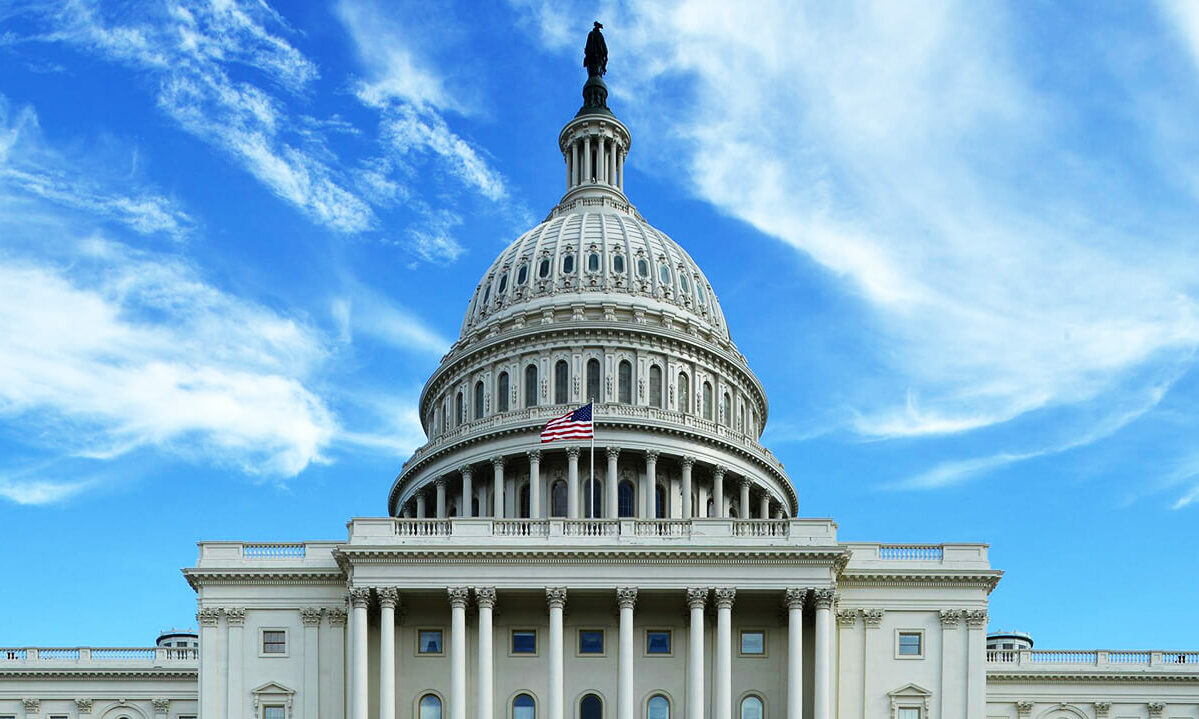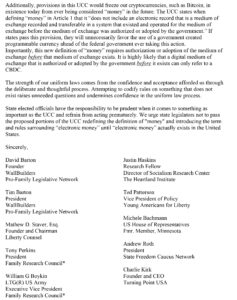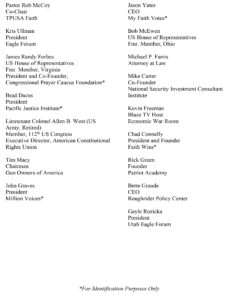Over the past several decades, numbers of my detractors have resorted to making extremist claims about me intended to create distrust or even fear in the minds of those who might hear me. By so doing, they hope potential listeners or readers will reject my message out of hand before even considering the evidence. One common ridiculous claim is that I am a Dominionist (someone who wants to reinstitute Old Testament law and establish a theocracy).
As a result, over the years, I have received questions like this one:
Does David adhere to or teach Dominion Theology or “Kingdom Now” theology? That is in part, that the Church of Jesus Christ will bring in God’s reign of righteousness rather than it happening through the physical return of Jesus Christ?
I disagree with Dominion and Kingdom Now theology and I am not a Dominionist.
Additionally, to establish a theocracy in America would require the abolition of our elective constitutional government. I have worked for decades to educate Americans about the history, excellence, and importance of the US Constitution. I am passionate about knowing and applying it and preserving its principles through the elective voting process. Since having elections precludes the possibility of a theocracy, and since I am such a strong promoter of citizen involvement in the election process, I definitely don’t seek a theocracy.
Furthermore, I am clearly on record about the definite limits of Old Testament law in modern culture. (As an example, see my commentary accompanying Exodus 20 in the very popular Founders’ Bible1.)
The evidence is abundant that their claims are wrong.
The allegations about me and Dominionism originated decades ago, almost exclusively from defamatory articles of atheist and anti-religious writers. Over subsequent years, many individuals doing casual web searches of my name found those earlier articles and innocently accepted their wild claims and then repeated or reposted them without any serious investigation of the truth. As a result, today scores of newer articles brand me as something I am not, and never have been.
Understanding the Original Claims
Examining the writings of those who originally made these errant claims two decades ago, it is clear that the issues the critics considered to be reflective of Dominionism were actually issues that were mainstream across the depth and breadth not only of the Christian community but of much of the nation. Notice the things they pointed to as evidence of Christian support for Dominionism.
According to Eric La Freniere, at the time a columnist for the Daily News Record, one of the most obvious indicators of those who seek a Theocracy is their belief that traditional marriage is to be between one man and one woman (what they often describe as following Old Testament law). He warned that to vote for any state constitutional amendment to protect traditional marriage (which was extremely popular in the 2000s and the 2010s, with support up to 70% in some states2) was “to cast a vote for Dominionism….the righteous religious-political movement to reclaim America as a Christian nation.”3 If La Freniere was correct, the tens of millions of voters in the 31 states who passed a state marriage amendment4 (before the US Supreme Court redefined marriage in 20155) were all part of the Christian Dominionist movement.
Author and journalist Chip Berlet agreed, asserting that the “anti-democratic tendencies in the Christian Right”6 concerning marriage amendments proved their Dominionist and Theocratic beliefs. By the way, notice his oxymoronic logic: having citizens publicly vote on marriage amendments placed on the public ballot through the elected legislative process was “anti-democratic.”
Chris Hedges in Harper’s Magazine linked such Dominionists to Adolf Hitler and fascism,7 asserting that conservative Christians were so dangerous that it was acceptable to confront and defeat them outside “the old polite rules of democracy”8—that is, the normal rules of constitutional republicanism could be set aside in order to defeat Christians. So is it Christians or the Secular Left who is really anti-democratic?
The Southern Poverty Law Center similarly warned that “Dominionist” Christians “seek to impose Old Testament law on the United States,” and that this desire runs “all the way to the [George W.] Bush White House.”9 What indications did they have of this Dominionism? —what role did the George W. Bush White House have in imposing “Old Testament law on the United States”? They, too, pointed to the state marriage amendments, and the further fact that President Bush had openly endorsed a federal Marriage Amendment.10
A Michigan newspaper (Eastern Echo) likewise alerted voters that a candidate running for Governor was part of Dominionism—that he was “seek[ing] to legislate American life under an ultimate authority of a right-wing interpretation of the Bible.”11 What made him a Dominionist? He not only supported traditional marriage but even opposed embryonic stem cell research. Clearly, he was a religious extremist seeking to impose Old Testament law on Michigan.12
Political commentator and writer Kevin Phillips added that “Christian Reconstructionists” also describe the separation of church and state as a “myth.”13 During the time he made these claims, some 1,800 legal incidents related to “separation of church and state” had occurred.14 Christian attorneys argued that the proper application of the historic separation of church and state did not mean people of faith could not express their faith in public, and that they had the same right to express their beliefs that secular folks did. But for secularists, the “separation of church and state” requires full secularization; therefore, those Christians arguing for equal protection were pursuing a “myth” and attempting to establish a Theocracy. (In recent years the US Supreme Court has issued a series of landmark decisions constitutionally repudiating the extremist views of the secularists, and, according to these arguments, they, too, are apparently Dominionists.)
More Claims
Numerous books and other seemingly countless articles used similar extremist rhetoric in attacking the Christian leaders who supported what were typically mainstream public issues.15 National Jewish writer and columnist Stanley Kurtz reviewed many of those writings and sarcastically summarized the ridiculous claims about Christians he found in those attack pieces:
What is the real agenda of the religious far Right? I’ll tell you what it is. These nuts want to take over the federal government and suppress other religions through genocide and mass murder rather than through proselytizing. They want to reestablish slavery. They want to reduce women to near-slavery by making them property, first of their fathers, and then of their husbands. They want to execute anyone found guilty of pre-martial, extramaritial, or homosexual sex. They want to bring back the death penalty for witchcraft. But aren’t extremists like this far from political power? On the contrary, the political and religious movement called “Dominionism” has gained control of the Republican Party, and taken over Congress and the White House as well. Once they take over the judiciary, the conversion of America to a theocracy will be sealed. The Dominionists are very close to achieving their goal. Once they have the courts in their hands, a willing Dominionist Republican-controlled Congress can simply extend the death penalty to witchcraft, adultery, homosexuality, and heresy. The courts will uphold all this once conservatives are in control, since [Supreme Court Justice Antonin] Scalia himself appears to be a Dominionist.16
Kurtz then singled out one of the voices making these ridiculous claims, Kathryn Yurica. He noted that she and her extremist accusations were actually mainstream among a considerable number of secularist groups:
Yurica’s article [“The Despoiling of America”] is so wild-eyed and strange that it would barely be worth mentioning were Yurica not a featured speaker at a recent conference called, “Examining the Real Agenda of the Religious Far Right.” That conference . . . was supported by the National Council of Churches, People for the American Way, The Nation, The Village Voice, and United Americans for Separation of Church and State.17
The speakers at that conference identified five congressional policies they believed provided absolute proof that America was being placed under Old Testament law by Christian Dominionists. What were those five theocratic policies?
(1) Enacting tax cuts;
(2) Funding faith-based programs;
(3) Decreasing welfare spending;
(4) Giving the Federal Communication Commission additional tools to crackdown on indecency on television; and
(5) Attempts to end judicial filibusters.18
Horrors! Once Christians begin enacting tax cuts, the next thing they’ll do is stone rebellious children and publicly pillory adulterers! Yet as Kurtz noted, most of what were labeled Dominionist views were rational positions widely embraced by a majority of the population.
Interestingly, a much later 2020 study claimed that more than half of all Americans today are Dominionists who want a Christian Nation.19 Really??? At a time when public polls show church attendance,20 Bible reading,21 and Biblical worldview22 are at record lows, more than half the nation are Christian Dominionists? This claim is just as absurd today as it has been for the past several decades. (A brilliant rebuttal of that study and its ridiculous conclusion was done by Prof. Mark David Hall in his “Tilting at Windmills: The ‘Threat’ of Christian Nationalism.”23)
Perhaps Supreme Court Attorney David French, who has handled countless federal court cases in his career, best summarized the ludicrous nature of the false call of Dominionism:
If originalist legal arguments and a call to return our country to its founding constitutional ideals constitute dominionism, which social conservatives aren’t dominionist? Is free speech a dominionist concept? What about religious liberty? How about protecting life and ensuring that it cannot be taken without due process of law? We’re all dominionists now.24
In summary, holding traditionally conservative and constitutional positions is what it meant to be a Dominionist when the term became popular some 20 years ago and when it was first applied to me. Those who used the term intended that it should scare unknowing citizens away from fearsome “Dominionist” leaders such as Justice Anthony Scalia, President George Bush, House Speaker Newt Gingrich, or me, all of whom publicly supported traditional marriage, opposed abortion and embryonic stem cell research, and thought voluntary prayer was appropriate in schools. This is how I came to be labeled a “Dominionist.”
David Barton
Endnotes
1 The Founders Bible (Newbury Park, CA: Shiloh Road, 2017), Exodus 20.
2 See, for example, ballot measures passed with 70% or greater approval in 2004 for Arkansas, Georgia, Kentucky, Mississippi, North Dakota, and Oklahoma (“Ballot Measures,” 2004, CNN); in 2006 for South Carolina and Tennessee (“Ballot Measures,” 2006, CNN); and numerous other ballot measures throughout the early 2000s for states with a pass rating of over 50% but lower than 70% (“Ballot Measures, 2008, CNN; “Approved Amendments,” Wikipedia, accessed on March 14, 2022).
3 Eric La Freniers, “You Can Vote For Dominionism,” Daily News-Record, October 31, 2006.
4 See, for example, constitutional amendments passed in Alabama, Alaska, Arkansas, Arizona, California, Colorado, Georgia, Florida, Hawaii, Idaho, Kansas, Kentucky, Louisiana, Michigan, Mississippi, Missouri, Montana, Nebraska, Nevada, North Carolina, North Dakota, Ohio, Oklahoma, Oregon, South Carolina, South Dakota, Tennessee, Texas, Utah, Virginia, and Wisconsin: “Approved Amendments,” Wikipedia, accessed on March 14, 2022.
5 Obergefell v. Hodges, 576 U.S. 644 (2015).
6 Chip Berlet, “The Christian Right & Theocracy,” Political Research Associates, accessed on March 14, 2022.
7 Chris Hedges, “Soldiers of Christ,” Harpers Magazine, May 5, 2005; Stanley Kurtz, “Dominionist Domination,” National Review, May 2, 2005.
8 Chris Hedges, “Soldiers of Christ,” Harpers Magazine, May 5, 2005; Stanley Kurtz, “Dominionist Domination,” National Review, May 2, 2005.
9 Mark Potok, “Democracy vs. Theocracy,” Southern Poverty Law Center, October 19, 2006.
10 George W. Bush, “Remarks on the Constitutional Amendment Protecting Marriage,” The White House, February 24, 2004.
11 Staff Edit / In Our Opinion, “Governor campaign fails to address issues,” Eastern Echo, October 30, 2006.
12 “Motors and Voters: Michigan’s Gubernatorial Race,” Wall Street Journal, 2006.
13 Kevin Phillips, American Theocracy: The Peril and Politics of Radical Religion, Oil, and Borrowed Money in the 21st Century (Viking, 2006), 233.
14 See the publication Undeniable by First Liberty, available at https://firstliberty.org/undeniable/.
15 See, for example, Tony Kiddie, Republican Jesus: How the Right Had Rewritten the Gospels (University of California Press, 2021); James C. Sanford, Blueprint for Theocracy: The Christian Right’s Vision for America (Metacomet Books, 2014); Michael L. Weinstein and Davin Seay, With God On Our Side: One Man’s War Against an Evangelical Coup in America’s Military (Thomas Dunne Books, 2013); Sam Harris, Letter to a Christian Nation: A Challenge to the Faith of America (Transworld, 2011); Clyde Wilcox, Onward Christian Soldiers? The Religious Right in American Politics (New York: Routledge, 2011); Michael Lerner, The Left Hand of God: Taking Back Our Country from the Religious Right (Harper San Francisco, 2006); Damon Linker, The Theocons: Secular America Under Siege (Doubleday, 2009); Robin Rex Meyers, Why the Christian Right is Wrong: A Minister’s Manifesto for Taking Back Your Faith, Your Flag, Your Future (San Francisco: Jossey-Bass, 2006); Phillips, American Theocracy (2006); Jim Wallis, God’s Politics: Why the Right Gets It Wrong and the Left Doesn’t Get It (HarperCollins, 2006); Bill Press, How the Republicans Stole Christmas: the Republican Party’s Declared Monopoly on Religion and What Democrats Can Do to Take it Back (Crown Publishing Group, 2005); Clint Willis, Jesus is Not a Republican: the Religious Right’s War on America (De Capo Press, 2005); Philip Gold, Take Back the Right : How the Neocons and the Religious Right have Betrayed the Conservative Movement (Basic Books, 2004); Jan G. Linn, What’s Wrong with the Christian Right (Florida: Brown Walker Press, 2004); Douglas Anthony Long, Fundamentalists and Extremists (2002); Rob Boston, Close Encounters with the Religious Right: Journeys into the Twilight Zone of Religion and Politics (New York: Prometheus Books, 2000); Frederick Clarkson, Eternal Hostility: The Struggle Between Theocracy and Democracy (University of Michigan, 1997); William Curtis Martin, With God on Our Side: the Rise of the Religious Right in America (Broadway Books, 1996); Bruce Barron, Heaven on Earth? The Social & Political Agendas of Dominion Theology (Zondervan, 1992); Sara Diamond, Spiritual Warfare: The Politics of the Christian Right (New York: Black Rose Books, 1989); and numerous others.
16 Stanley Kurtz, “Dominionist Domination,” National Review, May 2, 2005.
17 Stanley Kurtz, “Dominionist Domination,” National Review, May 2, 2005.
18 Jon Ward, “Left aims to smite ‘theocracy’ movement,” The Washington Times, May 1, 2005.
19 Andrew Whitehead and Samuel Perry, Taking America Back for God: Christian Nationalism in the United States (New York: Oxford University Press, 2020), 25.
20 Jeffery M. Jones, “U.S. Church Membership Falls Below Majority for First Times,” Gallup, March 29, 2021.
21 Alec Gallup & Wendy W. Simmons, “Six in Ten Americans Read Bible at Least Occasionally: Percentage of frequent readers has decreased over last decade,” Gallup, October 20, 2000.
22 George Barna, “Perceptions about Biblical Worldview and Its Application,” Center for Biblical Worldview, May 2021, 6.
23 Mark David Hall, “Tilting at Windmills: The “Threat” of Christian Nationalism,” Standing for Freedom, February 8, 2022.
24 David French, “I’m a Dominionist? I Had No Idea,” National Review, September 1, 2011.
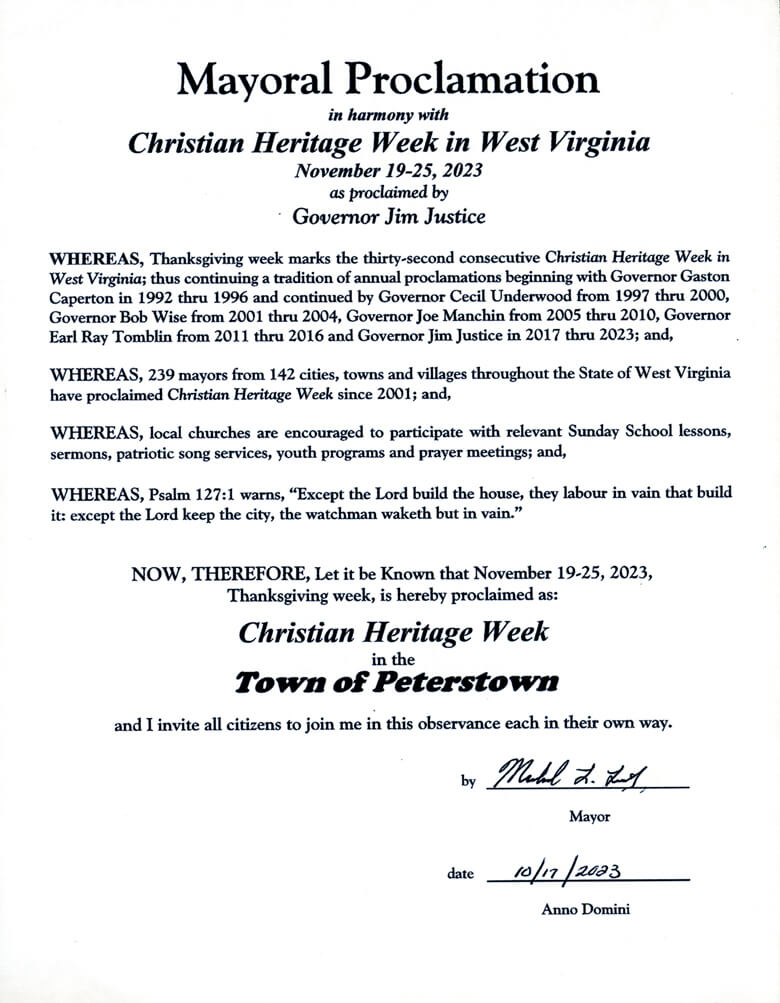
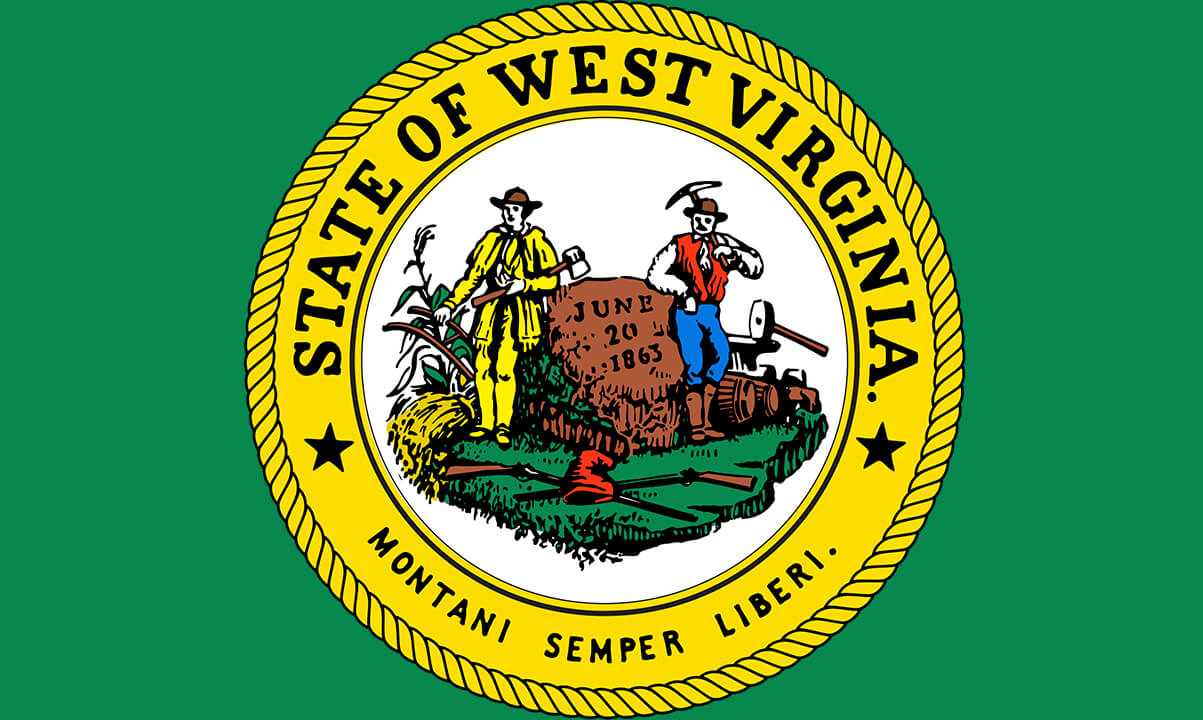

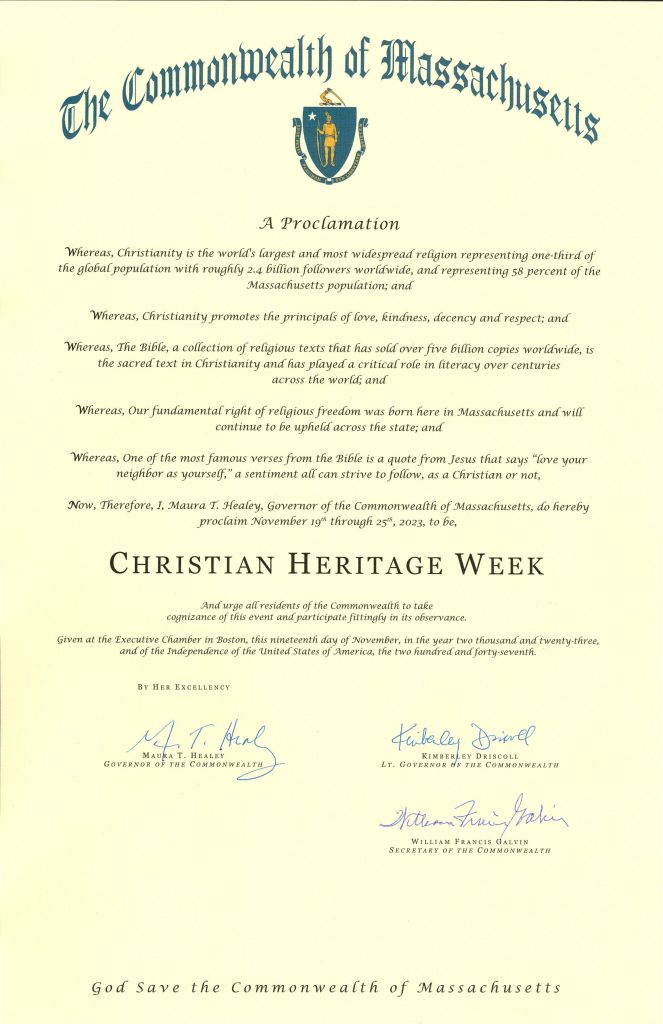
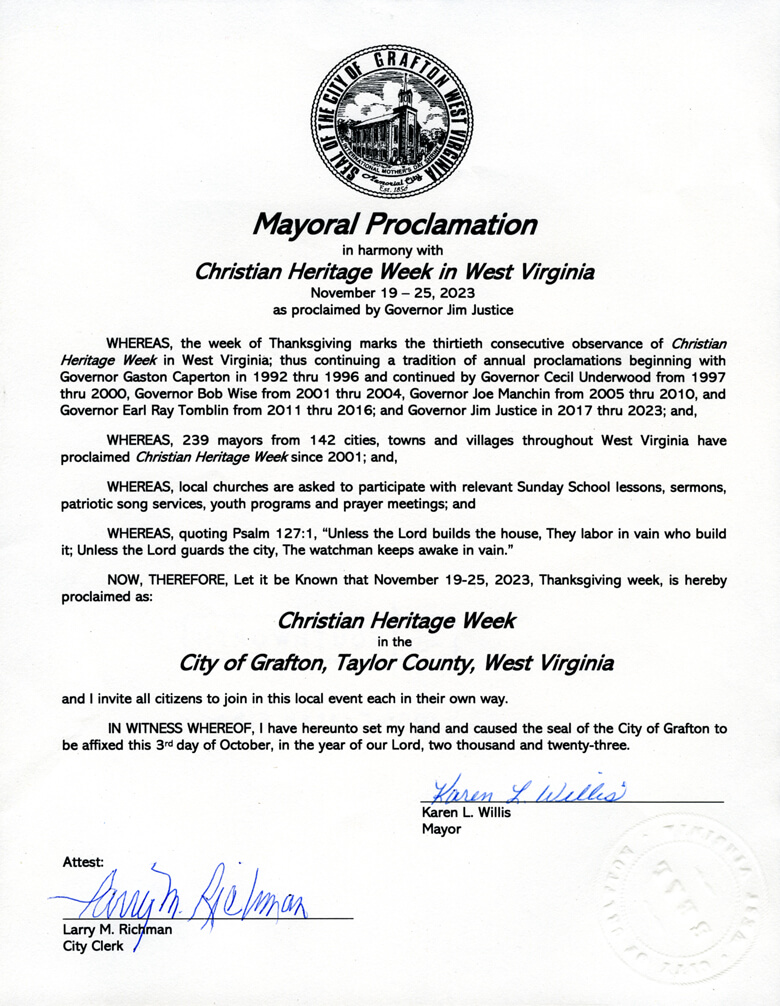
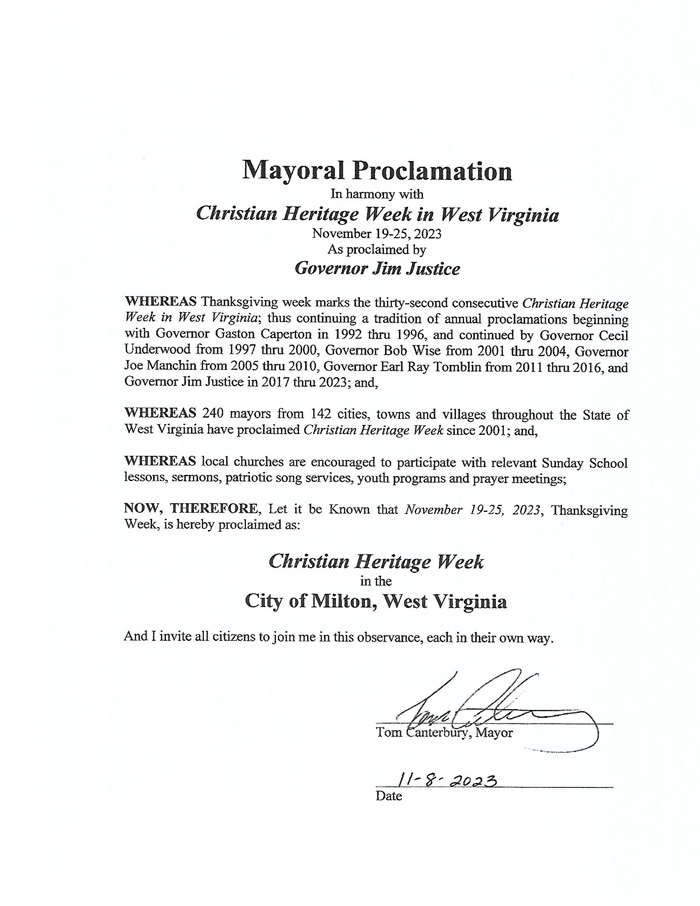 Mayoral Proclamation
Mayoral Proclamation
